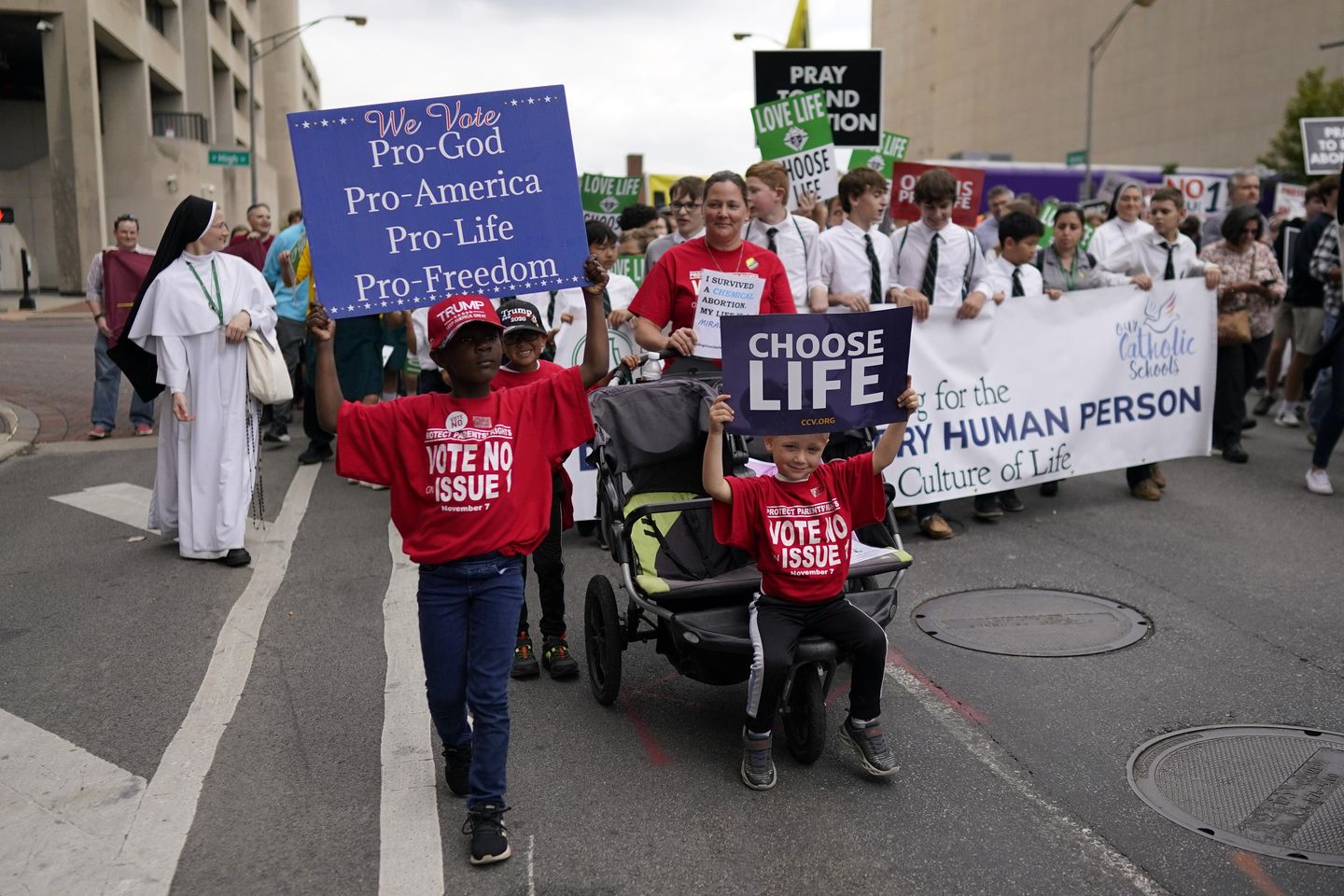In recent years, the debate over abortion has intensified, with pro-choice advocates and pro-life groups clashing over the issue of late-term abortions. Pro-choice advocates have long argued that late-term abortions are rare and often necessary for the health and well-being of the mother. However, pro-life groups have been quick to point out data showing a rise in late-term abortions in blue states, challenging the narrative that late-term abortions are not a significant concern.
The controversy over late-term abortions has once again come to the forefront of the national conversation, with pro-choice advocates dismissing concerns about the practice as a right-wing talking point. Despite this dismissal, pro-life groups have been vocal about the data showing an increase in late-term abortions in states that lean more liberal.
One of the key arguments made by pro-choice advocates is that late-term abortions are rare and only performed in cases where the mother’s health is at risk or the fetus has severe abnormalities. However, data from states like New York, California, and Washington show a concerning trend of a rise in late-term abortions, raising questions about the reasons behind this increase.
Pro-life groups have pointed to several factors that may be contributing to the surge in late-term abortions in blue states. One possible explanation is the loosening of restrictions on abortion access in these states, making it easier for women to obtain abortions later in their pregnancies. Additionally, the normalization of abortion as a form of birth control in some progressive circles may be contributing to the increase in late-term abortions.
Another factor that pro-life groups have highlighted is the lack of support for pregnant women in these states, particularly when it comes to resources for prenatal care and financial assistance. Without adequate support, some women may feel that they have no choice but to seek a late-term abortion, even if they would prefer to continue their pregnancies.
The rise in late-term abortions in blue states has sparked a renewed debate over the ethics of the practice. Pro-choice advocates argue that women have the right to make decisions about their own bodies, including the decision to have an abortion later in their pregnancies. They also point out that late-term abortions are often necessary in cases where the mother’s health is at risk or the fetus has severe abnormalities.
On the other hand, pro-life groups argue that late-term abortions are morally wrong and should be restricted, particularly when the fetus is viable outside the womb. They also argue that the increase in late-term abortions in blue states is evidence of a lack of respect for the sanctity of life and the rights of the unborn.
The debate over late-term abortions is likely to continue to be a divisive issue in the coming years, with both sides digging in their heels and refusing to compromise. However, it is clear that the surge in late-term abortions in blue states is a cause for concern and should prompt a closer examination of the factors driving this increase.
As the debate over late-term abortions rages on, it is important to remember that behind the statistics and political rhetoric are real women facing difficult decisions about their pregnancies. While the ethical and moral implications of late-term abortions are certainly worth discussing, it is crucial to approach the issue with empathy and understanding for the women who find themselves in these difficult situations.
Ultimately, finding common ground on the issue of late-term abortions will require an open and honest dialogue between pro-choice advocates and pro-life groups. By listening to each other’s perspectives and seeking to understand the reasons behind the surge in late-term abortions in blue states, perhaps a path forward can be found that respects the rights and dignity of all involved.









